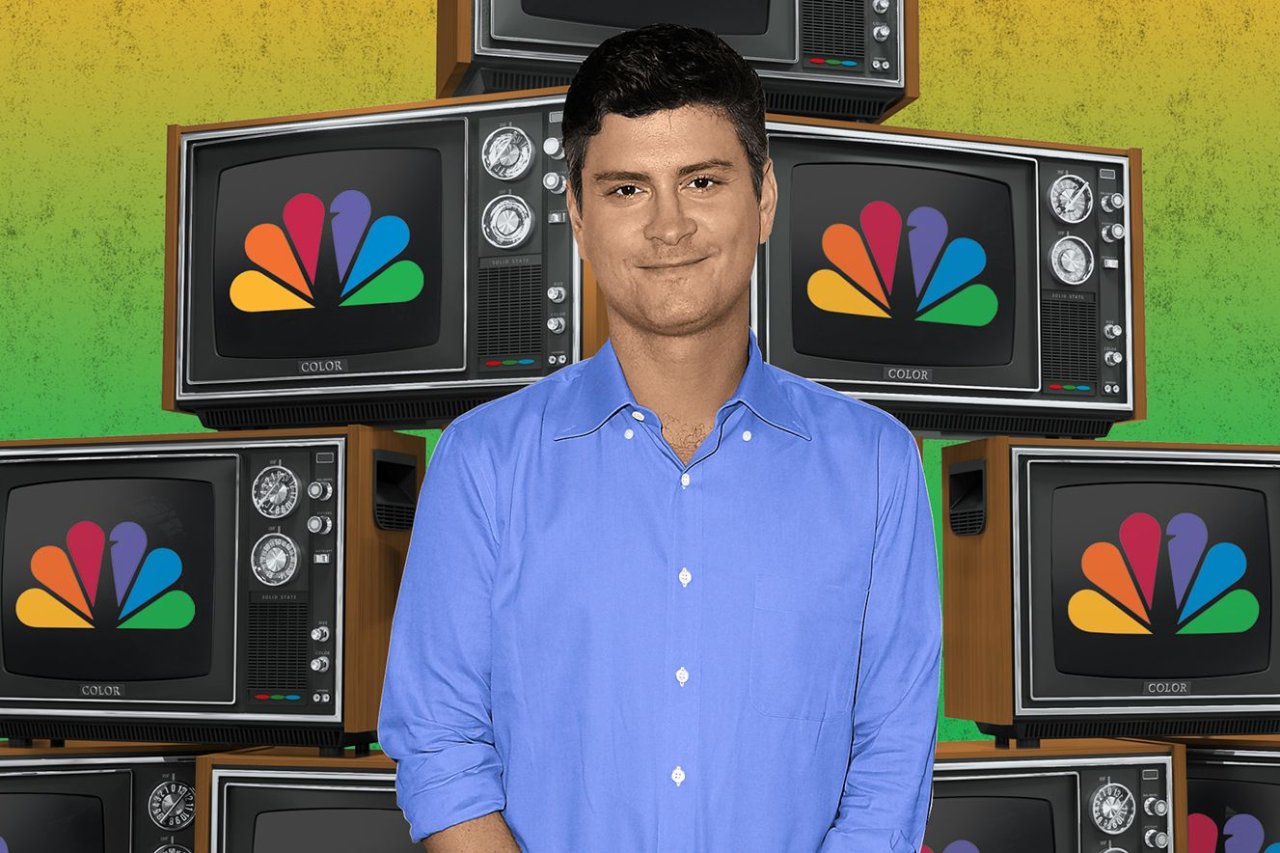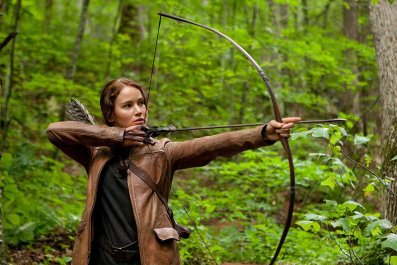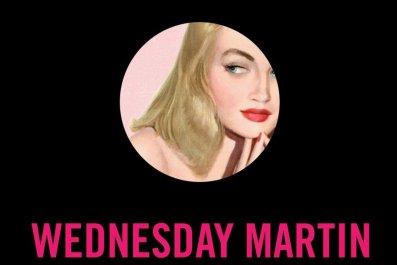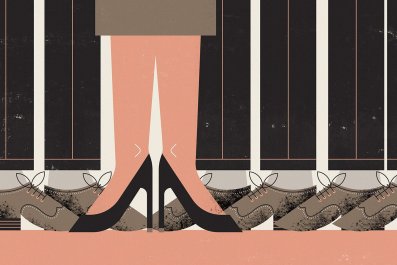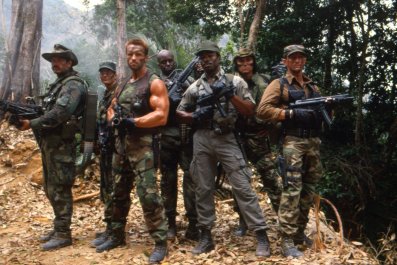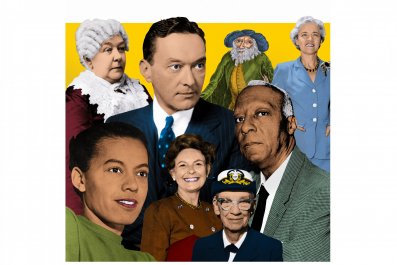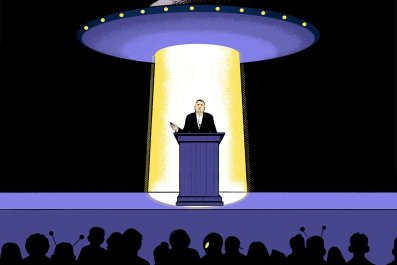Warning: This interview contains spoilers for Seasons 1 and 2 of The Good Place.
The first season of NBC's The Good Place, the sci-fi comedy from Parks and Recreation creator Mike Schur, ended with a shocking twist: Our self-centered heroine, Eleanor (Kristen Bell), was not sent to nondenominational heaven by mistake when she died; she was sent to the Bad Place. It turns out, she and her supposed soul mate for eternity, philosophy and ethics professor Chidi (William Jackson Harper), were test subjects for a new form of torture invented by a demon named Michael (Ted Danson).
Michael has a thing for screwing with people, and for temporal switcheroos. In one Groundhog Day–esque episode in Season 2, he erases and reboots the memories of Eleanor, Chidi and their friends Tahani (Jameela Jamil) and Jason (Manny Jacinto) 802 times. The intention: tricking Eleanor into thinking she's still in the Good Place. (He fails.) Season 2 ends with Michael un-killing the four friends, meaning the first two seasons never happened; we're back to 2016, on the day of the first episode. Uncharted territory, in other words—the MO of the show.
Layered on top of those shifting timelines are the intentional inside jokes and hidden messages—known as Easter eggs—inserted by Schur and his writers. (Lost, with its similarly fantastical premise, was famously riddled with Easter eggs, so it makes sense that Schur has a bromance with Lost co-creator Damon Lindelof, who vetted the Good Place pilot; there are multiple tributes to Lindelof and his follow-up show, The Leftovers, in Seasons 1 and 2).
In anticipation of the new season, arriving September 27, we asked Schur to explain some of the more perplexing aspects of his compulsively dissected comedy, which ended Season 2 with a 100 percent approval rating on Rotten Tomatoes. "I love that people care enough to ask about tiny details," says Schur, who's as surprised as anyone by some of the fan theories.
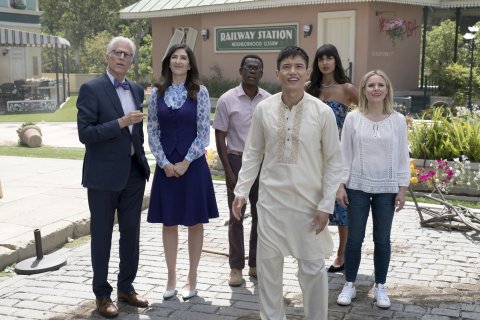
On why, in the Season 2 finale, Chidi was speaking fluent English on Earth when he previously said the Good Place was translating his native language, French, into English:
There's an explanation for that about six minutes into Season 3, so I won't spoil it. It's very straightforward and banal. When I wrote the pilot, I thought that was a neat Tower of Babel thing—something you would need in any afterlife that drew people from all over the world. I never in a million years thought, We're going to do a whole chunk of Season 3 on Earth. When we did flashbacks to Chidi on Earth—and I thought, Well, really he should be speaking French, and we should subtitle it like Lost did—I realized that, ultimately, being funny is more important than being 100 percent world-buildingly accurate. But because I'm a continuity nerd and a sci-fi nerd, we had to add an in-show explanation for it.
On the actual timelines of Michael's failed 802 reboots in Season 2's second episode, "Dance Dance Resolution":
The way that Eleanor figures out that she's in the Bad Place in the Season 1 finale is seeing everyone fighting and thinking, Man, this is torture. So we tried to think up funny scenarios that on paper are beautiful but for Eleanor are torture. Michael says that the longest one is 11 months and the shortest eight seconds. We took a rough estimate of the median length, and we calculated that, in Earth time, it's between 250 and 300 years. We delve more into the nature of how time works in Season 3.
On the reboot that involved Eleanor holding balloons in a cactus field, which became the Season 2 poster:
That came from a very simple idea: If you could take a postcard to explain a scenario that is torturous that would also make a beautiful image for key art, what would it be? Somehow, Michael created a scenario in which Eleanor had to get balloons from here to there—and oh, by the way, between here and there is a giant field of cacti. I realized the image was a perfect summation of the show.
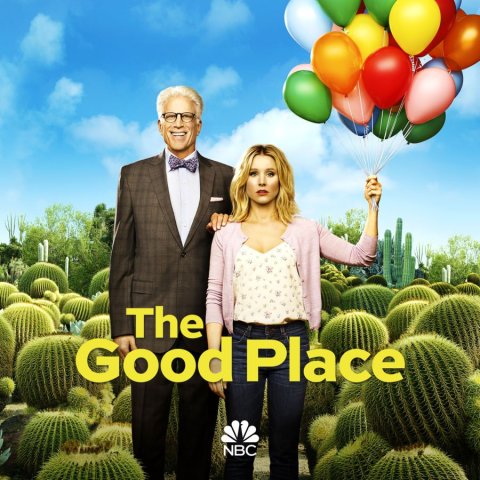
On the fan-favorite reboot, where Michael temporarily assigns Tahani as Eleanor's soul mate (in Season 1, Michael declares that everyone gets a soul mate for eternity):
Based on comments made throughout Season 1, Eleanor's sexual preferences are fluid. If you were Michael, trying 800 times to find the perfect blend of happiness and torture for her, you might make [Eleanor's] "soul mate" a woman in one reboot. It's amusingly predictable that the internet would latch on to two attractive women being soul mates. I don't want to indulge what seems to be a little bit of gross objectifying there. To me, what's more interesting is their friendship, and you see more of that in Season 3.
On the significance of the show's unusually specific numbers—802 reboots, 322 people in the neighborhood, Chidi and Eleanor kissing in Reboot 119:
The short answer is that they are just numbers. People think there is great significance in round numbers, so to me the ones that don't come with a presumed significance are funnier. My friend Robert Carlock [co-showrunner of 30 Rock ] and I worked together on Saturday Night Live. We wrote a sketch about a guy—Will Ferrell—who was digging to China. It began with him digging this hole going, "999,999." Then he put his shovel in again and said, "A million." Then he put it again and said, "A million and one." Did it again, "A million and two!" Then he went, "OK, a million and two, time for a break!" There was nothing else to that joke, it just made us laugh that you would stop at a million and two instead of a million. So 802 reboots or Reboot No. 119 is just weirder and funnier because it's random.
On why Janet (the humans' artificial intelligence helper, played by D'Arcy Carden) never pops up where you expect her to:
We decided that in order to be excessively polite, Janet would always appear on the opposite side of where someone is looking, so as not to alarm them. In the canon of Janet, she never pops right in front of someone, she always pops in to the side or behind them, and then announces herself with a very pleasant, "Hi there."
On why ads from characters that existed on Schur's Parks and Rec turn up onThe Good Place:
To be completely honest, it's easier to make up a product for your ad for your fake magazine than to use actual companies, like AT&T, because those need to be cleared. We thought it would be a fun wink to use Jean-Ralphio's champagne, or to say that a safe is from the Swanson Safe Company. I'm not trying to imply that these shows take place in the same exact universe, as some theorize. However, as you get deeper into Season 3, you're dealing with timelines and multiverses, so I'm also not saying that's impossible!
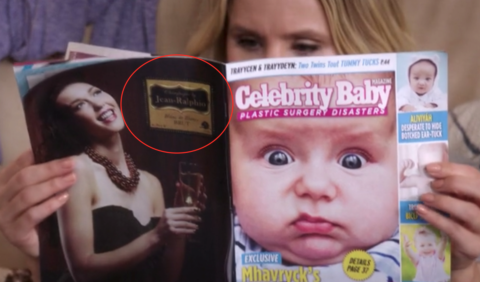
And yet, the Lerpiss family—that dynastic Pawnee family from Parks and Rec—is on the scoreboard that tracks "good person points":
Oh, right. [ Laughs. ] Well, Lerpiss is an extremely common last name. Like Smith.
On whether the Good Place is an homage to The Wizard of Oz:
Someone sent me an article about the episode with the hot-air balloon [Season 2's "Best Self"]—"Here's the 76 references to The Wizard of Oz that were in The Good Place last night." However, I can honestly tell you at no point in the entire history of the show have we ever discussed The Wizard of Oz in the writers' room. Never! And yet none of the references were a stretch. Maybe it was a collective unconscious thing—that story is extremely archetypal. Or maybe we all blacked out Fight Club –style and did a bunch of stuff we didn't remember doing.
On whether Schur has something against frozen yogurt, given it's often dissed on the show—and because Ron Swanson once said on Parks and Rec, "Be ice cream or be nothing":
[Laughs.] I hadn't even made that link until just now. But yes, absolutely, "Be ice cream or be nothing" is the correct way to talk to frozen yogurt.
On why Schur hates frozen yogurt:
I don't hate it! I kind of like it. But when I was writing the pilot, I thought, What is the perfect food that, if you went to [fake] heaven and saw it, it wouldn't ring any alarm bells, but also there's a better version of it? Ice cream is better than frozen yogurt, straight up: It's creamier, richer and more flavorful. Michael says it best: It's so human to take something great and ruin it a little, just so you can have more of it.



